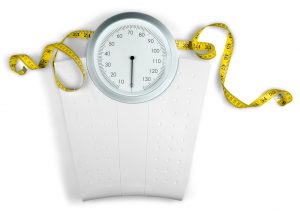Sometimes it may seem that over the same period of time, on the same diet and exercise regimen, that men lose weight quicker than women. Some say that men have more muscle mass, so their metabolism is higher. Others say that it has to do with hormones. So, what is the real reason behind this phenomenon, and is it even a real phenomenon? A recent study found that men with prediabetes lost significantly more weight over eight weeks than women with prediabetes. Let’s explore why this may be.
What is prediabetes?
Those with prediabetes have a higher than normal blood glucose level. However, they are not at the point where their blood glucose status qualifies as diabetes. A diagnosis like this might be scary, but it can be a good thing. When you are given a diagnosis of prediabetes, there is a chance to reverse your risk of diabetes by changing lifestyle factors. With the guidance of a qualified health professional, you can tweak your diet and increase your physical activity to help you lose weight and lower your blood glucose levels.
In most cases, after such a diagnosis, you will be asked to come back for a retest of your blood glucose labs in 3 to 6 months to make sure everything is moving in the right direction. Some doctors may put you on medications such as metformin to help with this if diet and exercise alone is not helping.
Men weight loss faster than women?
 A recent study of 2000 overweight men and women with prediabetes looked at the effects of a low-calorie diet. After eight weeks, the men in the study lost significantly more weight than women and had larger reductions in their metabolic score, which is a marker for diabetes. In addition, the men had greater loss of fat mass and lower heart rate after eight weeks on the diet. However, women did have the upper hand on some health markers. In fact, women had a larger reduction in hip circumference, lean body mass, and pulse pressure than men.
A recent study of 2000 overweight men and women with prediabetes looked at the effects of a low-calorie diet. After eight weeks, the men in the study lost significantly more weight than women and had larger reductions in their metabolic score, which is a marker for diabetes. In addition, the men had greater loss of fat mass and lower heart rate after eight weeks on the diet. However, women did have the upper hand on some health markers. In fact, women had a larger reduction in hip circumference, lean body mass, and pulse pressure than men.
Researchers suggest that it is clear that men benefited more from this low calorie diet than women. However, longer term studies will need to be done to figure out exactly why. Theories suggest that women may have a harder time losing weight since they store fat more easily than men. Also, women have less muscle mass than men, which can affect metabolism. Finally, women are more prone than men to yo-yo dieting, which can negatively affect long-term weight loss success.
Strategies for weight loss
Just because the weight loss odds seem to be against women, that does not mean that successful long-term weight loss is impossible. Follow the strategies to help you lose weight, no matter your gender.
- Eat enough fiber each day. Only one in ten Americans eat the minimum recommended amount of fruits and vegetables daily. This low fiber intake can impact digestive health, heart health, and overall quality of the diet. Fruits and veggies also contain antioxidants that can help lower risk of chronic diseases like diabetes and heart disease by reducing oxidative stress and related cell damage. Therefore, be sure to get plenty of veggies and fruits in your meals and snacks. You can add spinach or tomatoes to your eggs for breakfast, or throw in fruit and veggies into a morning smoothie. For meals, grab some frozen veggies that you can steam in less than 10-15 minutes, depending on the veggie. For snacks, crunch on some baby carrots and apple slices, or enjoy some berries or grapes.
- Move more each day. Many of us have jobs that require sitting for most of the day. Therefore, make it a point to take the stairs, take a walk during lunch if you can, and/or make time in the evening to take a walk after dinner or take an aerobics class at your local community center. Every step will help you burn more calories, keep your heart strong, and help you lose weight.
- Try a supplement regimen. Low vitamin D, B12, or iron can affect your health status, and in turn impact energy levels and weight loss. You should have your labs tested to see if you may have a nutrient deficiency. Also, if you have prediabetes, a supplement like Glucarex may help as well. Glucarex by Vita Sciences contains chromium, alpha lipoic acid, and cinnamon, which can support healthy weight loss metabolism, and blood glucose levels.
- Surround yourself with support. Long-term weight loss success is often seen in those with social support systems in place. Whether you engage your family in more healthy meals, have family walks, have a weight loss buddy at work, or join a support group, support can make the difficult act of losing weight a little easier. Not only that, but support can help you stay accountable and on track with your goals. Also, having a qualified healthcare team of doctors and dietitians can help you stay on the right path to health.
-written by Staci Gulbin, MS, MEd, RD, LDN
References:
Centers for Disease Control (November 16, 2017) “Only 1 in 10 Adults Get Enough Fruits or Vegetables.”
Mayo Clinic (August 2, 2017) “Prediabetes.”
 With the summer months approaching and weather warming, weight loss may be on your mind. With every click of the remote, there are commercials advertising weight loss plans, exercise equipment, and fat burning supplements claiming to help you manage your weight. However, a recent study has shown that regular eating versus dieting may be the answer to long term weight loss and management.
With the summer months approaching and weather warming, weight loss may be on your mind. With every click of the remote, there are commercials advertising weight loss plans, exercise equipment, and fat burning supplements claiming to help you manage your weight. However, a recent study has shown that regular eating versus dieting may be the answer to long term weight loss and management.